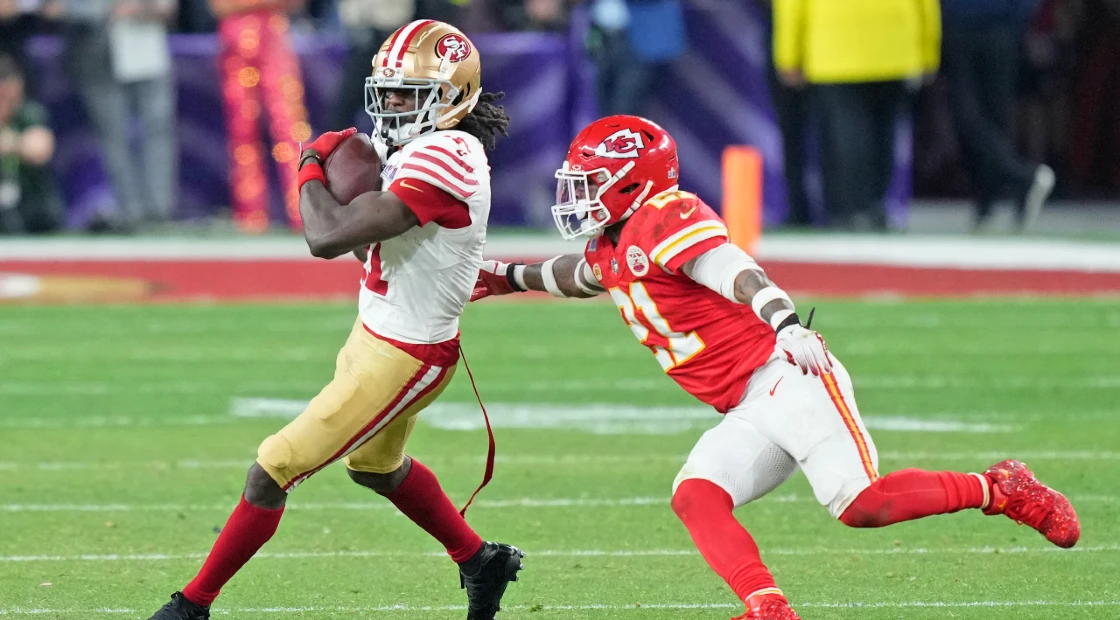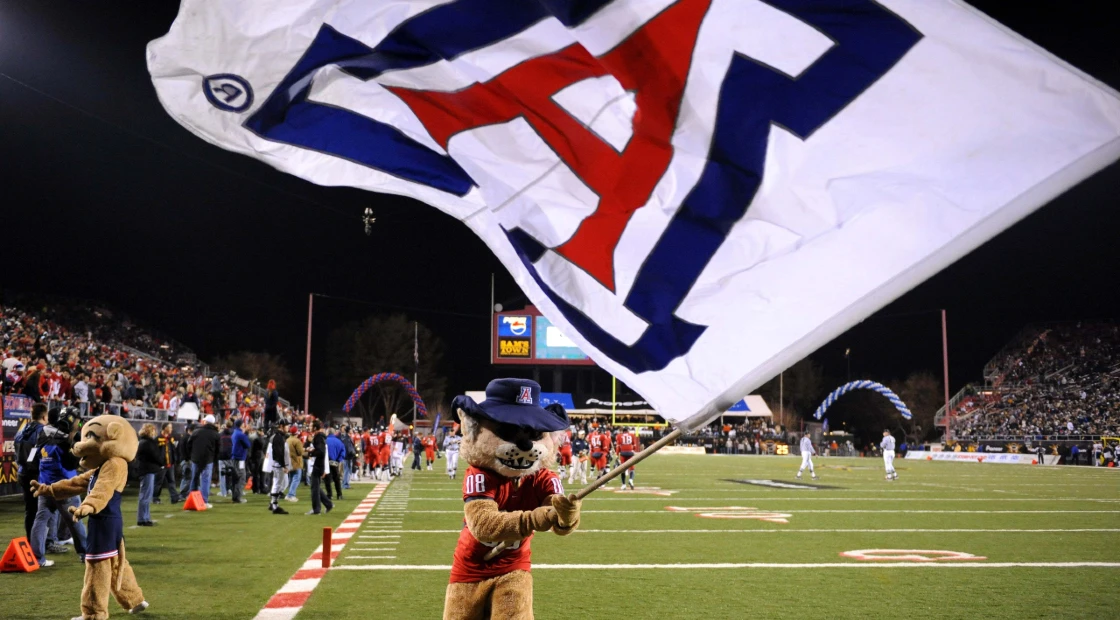Yavapai-Apache Tribe Makes Another Attempt to Stop Sports Betting in Arizona

The Yavapai-Apache Indian Tribe has submitted a revised lawsuit regarding the implementation of sports betting in Arizona after their first unsuccessful try three days earlier.
The updated legal complaint seeks to challenge the constitutionality of the 2021 gaming compact on multiple grounds, including the assertion that Arizona H.B. 2772, the law that enacted the compact, is unconstitutional.
On Labor Day, Judge James Smith of the Maricopa County Superior Court dismissed the initial lawsuit filed by the Yavapai-Prescott tribe, stating that the tribe failed to demonstrate how the bill in question resulted in financial hardship for them.
Smith’s order states that the Tribe did not show that H.B. 2772 is likely to violate their event wagering rights in comparison to Sports Franchise Owners. The Tribe also did not provide sufficient evidence that public policy aligns with their request for injunctive relief. As a result, the Tribe’s motion for a Temporary Restraining Order and a Preliminary Injunction has been rejected.
The tribe initially filed a lawsuit to block the launch of Arizona’s new sports betting apps on Sept. 9, but their subsequent lawsuit is now focused on immediately stopping the activity.
During the weekend, Arizona NFL and Arizona Cardinals betting had a successful beginning, coming in fourth place for the amount of bets placed compared to other states. Bettors in Arizona took advantage of sportsbook promo codes to improve their betting experience.
Based on information from a court Public Information Officer interviewed by yengols.com, no court date has been set for the case and the timeline for a decision remains uncertain.
The most recent updates on the tribe’s lawsuit in the Maricopa County Superior Court system are as follows:
What is the main point of the tribe’s argument?
The most recent lawsuit by the Yavapai-Apache tribe centers on well-known legal arguments, such as the assertion that the approval of the compact by the legislature without voter consent violated Arizona’s Voter Protection Act and the state’s constitutional prohibition on special laws.
The main point of contention is how the bill was passed, with the argument being that the 2021 gaming compact differed from the original compact created under Proposition 202.
The complaint states that the Voter Protection Act restricts legislative action to only technical amendments, which can only be made under certain conditions, such as a supermajority vote and when the amendment serves to further the purpose of the measure.
Exclusive gaming rights held by tribes are lost.
The tribe’s complaint details how Prop. 202 was meant to grant tribes in the state sole rights to gaming, but the 2021 compact permitted professional sports teams to engage in casino activities off tribal land, undermining the intended exclusivity.
The complaint argues that H.B. 2772 does not align with the objective of Proposition 202, which aims to grant Arizona-based Indian tribes the sole authority to conduct Class III gaming activities on Indian lands in accordance with the Indian Gaming Regulatory Act, and goes against the spirit of Proposition 202.
The tribe argues that the compact violates the state constitution by granting special privileges to sports teams, rather than upholding the tribe’s exclusive rights to gaming as mandated by law.
Feelings of Mistreatment
In addition, the complaint highlights the unequal treatment of the Yavapai-Prescott Indian Tribe in the agreement, which prohibits them from obtaining land for gaming activities in the Phoenix region. This is in contrast to other tribes like the Tohono O’odham, Ak-Chin, and Gila River tribes, who are permitted to engage in such activities.
The complaint alleges that the growth of gaming in the Phoenix Metropolitan Area is not restricting gaming but instead is expanding it. YPIT did not receive any corresponding rights in any area of Arizona.
Furthermore, the YPIT tribe encountered unfair treatment in comparison to other tribes, as their participation in negotiating the terms of the 2021 Amended Compact was contingent upon signing the 2016 Agreement to amend the Compact, reflecting a clear bias against YPIT.
The tribe claims that the 2016 compact was discriminatory because it permitted other tribes, including those mentioned, to expand their gaming facilities in Maricopa and Pinal counties without requiring them to give up a similar right to land in the area.
According to the complaint, the Yavapai-Prescott Indian Tribe did not sign the 2021 gaming compact because of a significant difference.
The complaint contends that the rights provided by H.B. 2772 are determined by arbitrary geographic boundaries and that it ultimately increases, rather than restricts, gambling in the Phoenix area. The unequal treatment of YPIT in the legislation is considered to have no logical justification.
The complaint does not specify any monetary damages but instead highlights the non-financial effects of being denied the privileges enjoyed by the 10 tribes and seven sports teams. This encompasses the opportunity to engage in different types of gaming activities, whether on tribal territory or elsewhere.
Other relief claims were also mentioned.
The tribe is also claiming that the state’s most recent compact violates Arizona’s Equal Protection Clause, which prohibits granting special privileges or immunities to individuals or businesses that are not of a municipal nature and are not accessible to others.
The complaint contends that the compact is discriminatory as it makes distinctions based on race and origin, particularly between Sports Franchise Owners and Indian tribes, which are deemed a suspect class.
The tribe’s argument relies on the fact that the state has allocated 10 licenses to both tribes and teams, even though the YPIT claims there are only seven teams in Arizona.
This suggests that only three licenses are available for teams, and fewer than half of Arizona’s 21 federally recognized Indian tribes qualify to receive them, leading the tribe’s complaint to claim a violation of the clause.
In addition, the tribe argues that the 2021 compact should be put on hold until a definitive ruling is reached. They claim that the tribe will face irreversible damage if the licenses described in H.B. 2772 are approved, as outlined in the complaint.
Since sports betting launched on Thursday, GeoComply reports that there have been over 6.1 million sports betting transactions in Arizona, ranking it as the fourth highest in the country.
Sports betting is already happening.
Professor Derrick Beetso of the Sandra Day O’Connor College of Law at ASU believes that the tribe’s lawsuit is now inconsequential since the information has already been revealed.
Beetso sent an email to yengols.com stating that all sports betting license holders, including both tribal and non-tribal entities, have experienced substantial financial gains since last Thursday. Additionally, there has been a strong interest from consumers who have already invested in the system and are expected to continue investing.
At the Labor Day hearing for the motion for preliminary injunction, the judge indicated that the Tribe had not sufficiently shown its injury, noting the absence of financial studies or other evidence that clearly outlined the Tribe’s interest in the case.
He said that the tribe’s most recent lawsuit will need to address two legal hurdles: the need for restitution and the suit’s credibility within the state’s legal system, a difficult standard for the lawyers to meet.
Beetso was worried that failing to include this issue in the amended complaint could create a major hurdle for the Tribe in proving redressability and standing in Arizona courts. He stressed the need for specific numbers and data to back up their claims of harm and improve their case.

Author

Peterson Christopher has spent seven years covering sports and sports betting in Arizona, with experience at ArizonaSports.com, the Tucson Weekly, and the Green Valley News. He currently holds the position of lead writer at yengols.com.
According to leading media sources, such as:














